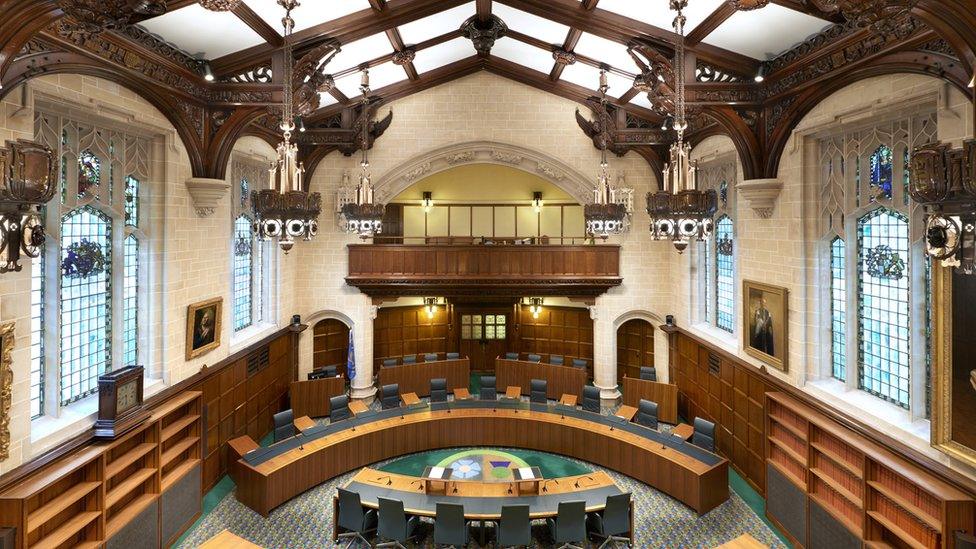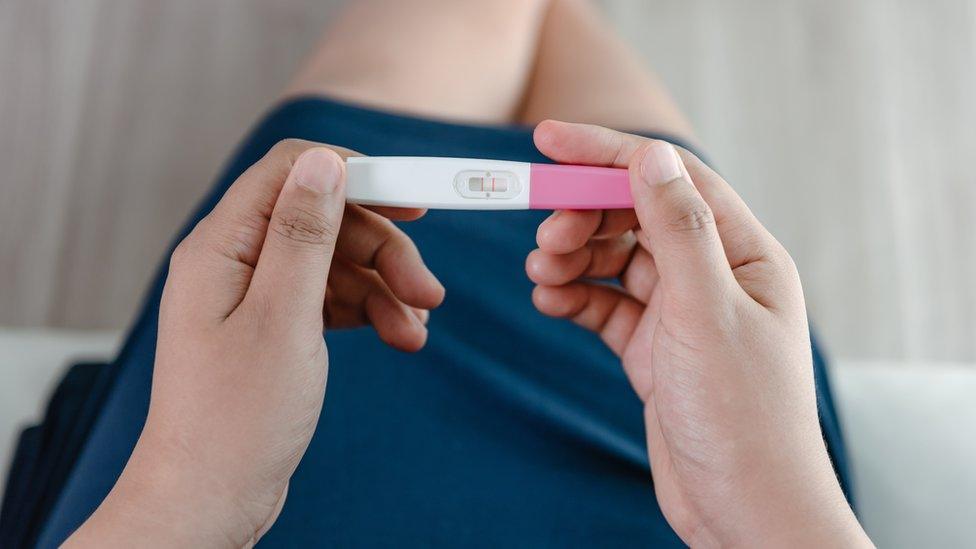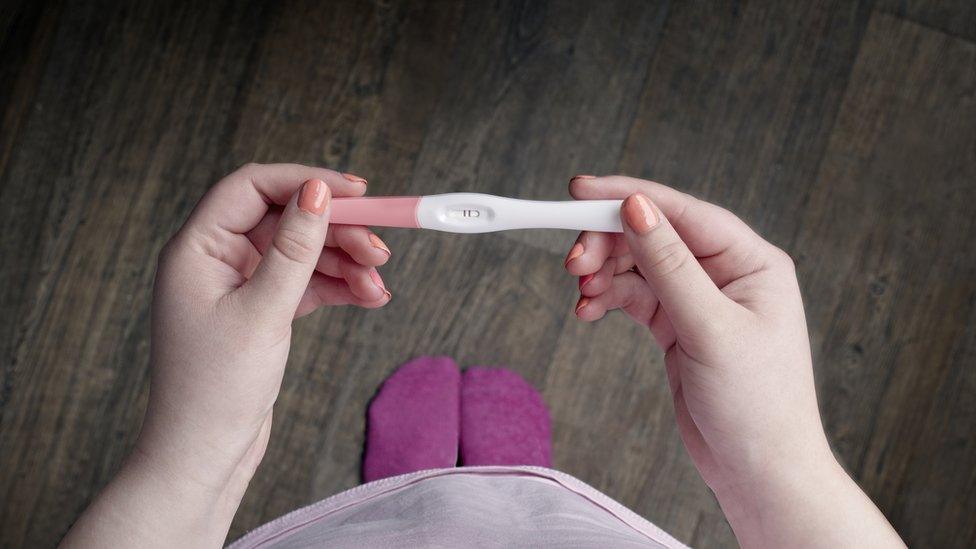Abortion: 'No need' to amend NI protest bill, Supreme Court told
- Published

The challenge is being heard at the UK's highest court, the Supreme Court
There is "no necessity" to amend a bill that would ban anti-abortion protests at health settings in Northern Ireland, the Supreme Court has heard.
Passed at Stormont in March, the legislation is being challenged by Northern Ireland's Attorney General.
She has asked the court to decide if it "disproportionately interferes" with the rights of anti-abortion protesters.
But on Wednesday counterarguments were made that the bill is within the "legislative scope" of the assembly.
The bill would make it an offence:
to protest against abortion within the 100m "safe access" zones,
directly argue or harass people who may be attending the clinics
or to obstruct access to the premises in question.
Northern Ireland's Attorney General, Dame Brenda King, is challenging the legislation on the basis that it did not include a defence of "reasonable excuse".
Counsel for her argued that the current legislation breaches the European Convention on Human Rights (ECHR), relating to the articles on freedom of religion and expression.
But responding, the Lord Advocate of Scotland, Dorothy Bain QC, said there was "no necessity" to include the reasonable excuse defence in the bill.
She suggested to the court that the "competing rights" of individuals were already protected in the legislation, and that the personal autonomy rights of women accessing clinics needed to be upheld as well.
"The effect of conduct is targeting a vulnerable group directly, at the most vulnerable point in the process," said Ms Bain.
"I question whether the rights of those in a safe zone are engaged. Is this a process of protest?
"Is this not simply targeting a vulnerable group in order to persuade them to do something other than they have already decided to do?"
Ms Bain added that if the court determined aspects of the bill merited being reconsidered, that would be a "valuable exercise", as similar legislation is currently being looked at by the government in Scotland.
'Run the gauntlet'
The Northern Ireland Human Rights Commission also appeared before the court.
Representing the commission, David Blundell QC said the legislation as it stood would not ban anti-abortion protesters from demonstrating "at all".
He said that currently women accessing services had to "run the gauntlet of placards and prayers", which also had the effect of leaving clinical staff "angry and uncomfortable".
"People can still make all those protests in a different area, in fact quite close. This is not the sort of legislation that says you can't do this at all, anywhere," he added.
Judgement is expected to be delivered in the coming months.
Related topics
- Published19 July 2022

- Published12 May 2022

- Published2 March 2022
